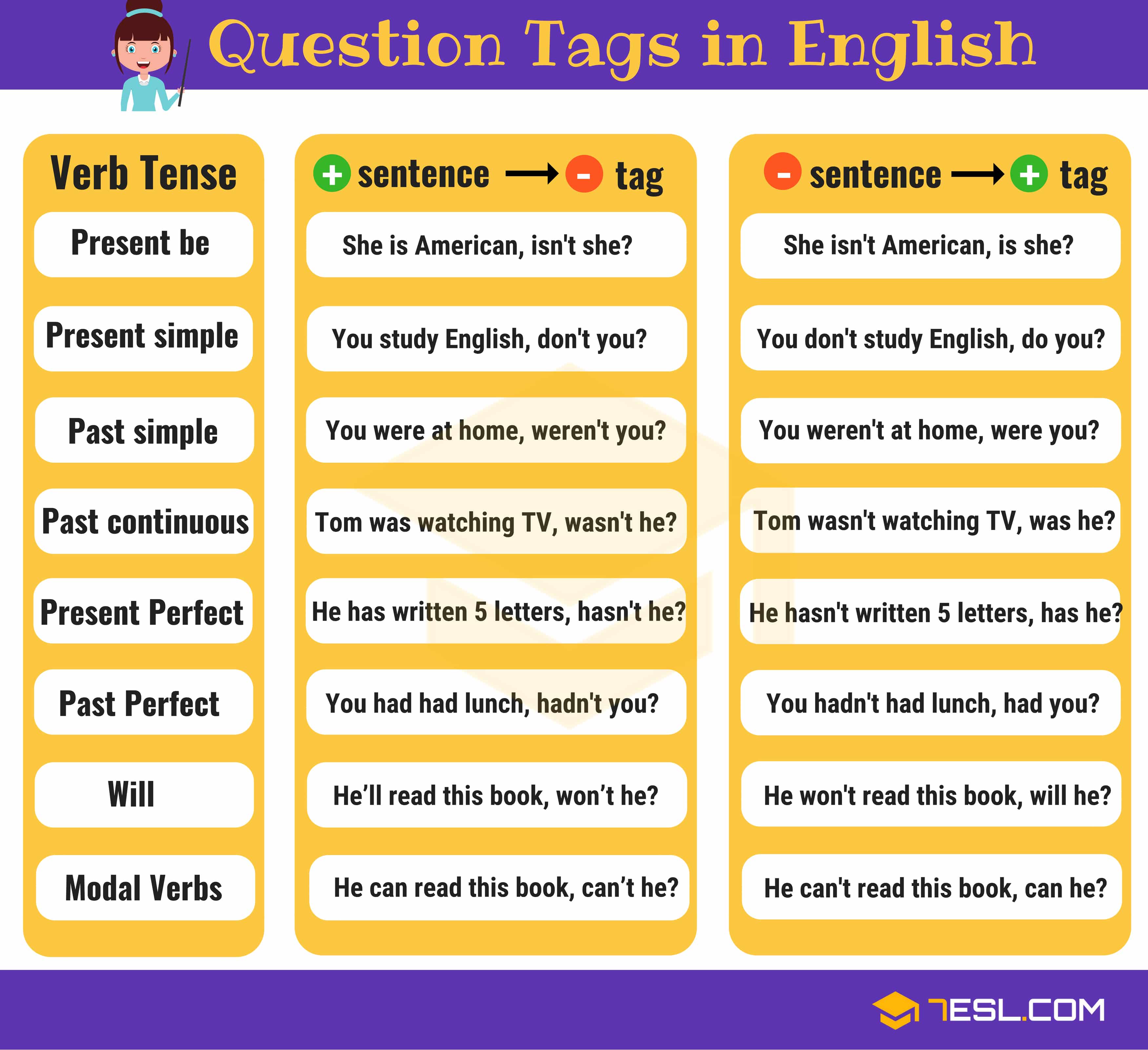(31 de Agosto - 13 de Septiembre)
ENGLISH
&
COMMUNICATIVE SKILLS
9th C
OVERVIEW & PURPOSE: To Learn QUESTION TAGS

¿Qué son las question tags?
Son esas preguntas cortitas que se añaden al final de la frase cuando no estamos seguros de cierta información o también cuando hacemos una pregunta retórica.
👉 You don’t drink coffee, do you?
👉 Your cat is so gorgeous, isn’t he?
Equivalen a las coletillas que usamos constantemente en español: ¿no?, ¿verdad? …
🖐️ Careful my friend 🖐️
En inglés no es correcto añadir estas coletilas al final de la frase, por muy bien que nos suene. No escucharás a ningún nativo diciendo:
You’ve been to New York, no?
En su lugar diría:
You’ve been to New York, haven’t you?
¿Cómo se construyen las question tags?
Si la frase es positiva, la question tag será negativa.
Si la frase es negativa, la question tag será positiva.
👉 You know how to cook, don’t you?
👉 You don’t know how to cook, do you?
La estructura de la frase será:
A veces podemos ver los verbos auxiliares en la oración principal y otras no. Vamos a ver ambos casos.
👉 El verbo auxiliar APARECE en la oración.
Verbo ‘to be’ (present & past continuous)
- He is sleeping, isn’t he?
- You are working this week, aren’t you?
- She was ill last week, wasn’t she?
- They were eating, weren’t they?
Present & past perfect
- You have met my sister, haven’t you?
- She has eaten my cake, hasn’t she?
- You had spoken to Mary, hadn’t you?
Will & modal verbs
- It will be fine, won’t it?
- She won’t tell anybody, will she?
- You can’t take sugar, can you?
- I should study hard, shouldn’t I?
- He must be so sad, musn’t he?
👉 El verbo auxiliar NO APARECE en la oración.
Present & past simple
- She runs really fast, doesn’t she? (She does run)
- They live in Belgium, don’t they? (They do live)
- You ate my biscuit, didn’t you? (You did eat)
- It rained last night, didn’t it? (It did rain)
¡Lo que más nos confunde!
- He has a hamster, doesn’t he?
- He has got a hamster, hasn’t he?
- They have to eat, don’t they?
- They have got to eat, haven’t they?
Cuando have got es el verbo de la oración principal, la question tag se forma con have/haven’t o has/hasn’t.
Casos especiales (handle with care) 🔥
Con ‘I am’, siempre se usa la question tag ‘aren’t I?
I am the best student in the class, aren’t I?
Con el imperativo siempre se usa ‘will you’, tanto si la oración tiene sentido positivo o negativo.
Pass me that pen, will you?
Don’t be late, will you?
Con la expresión ‘Let’s’, siempre se usa el question tag ‘shall we’:
Let’s have lunch, shall we?
Let’s not argue, shall we?
Con ‘there is’ y ‘there are’, la question tag se forma usando ‘there’ en lugar de un pronombre:
There isn’t any bread left, is there?
There is plenty of time, isn’t there?
TOMADO DE: https://www.amigosingleses.com/2018/02/22/aprende-usar-las-question-tags-en-ingles/



LET´S PRACTICE!!!




No hay comentarios.:
Publicar un comentario